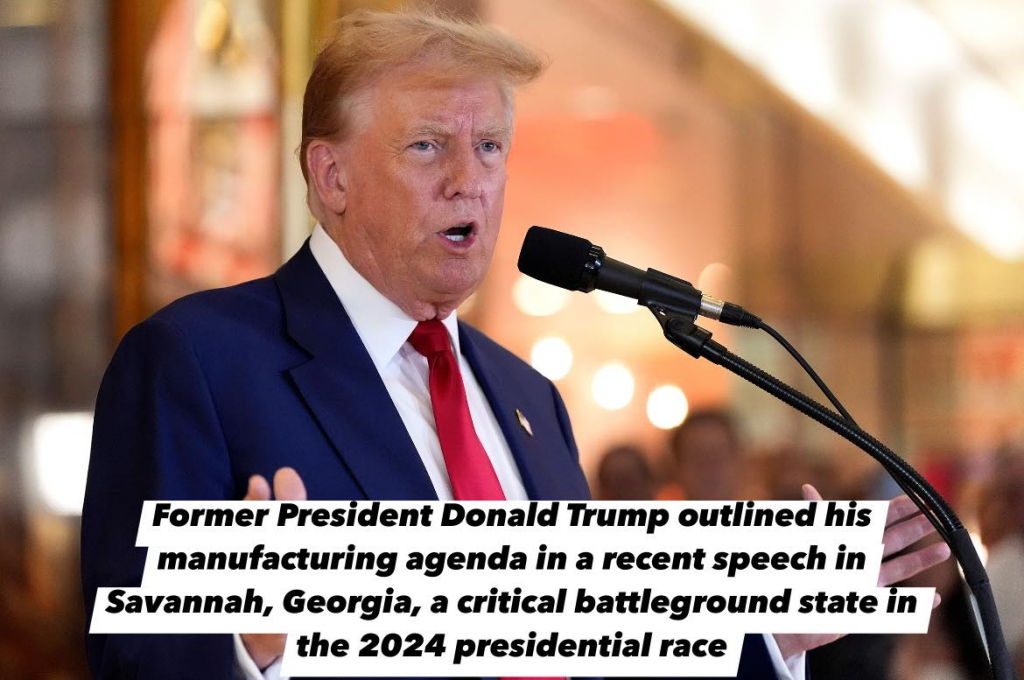Speaking at one of the nation’s busiest ports, Trump announced new incentives to bring manufacturing jobs back to the U.S., including measures he previously implemented during his presidency with mixed results. He declared, “Georgia and Savannah are going to be right in the center of the action. We’re going to rebuild our manufacturing, and it will happen fast and beautifully.”
As the economy remains a top concern for voters nationwide, Trump and Vice President Kamala Harris are proposing targeted economic strategies. Trump’s plan includes expanded research and development (R&D) tax credits, part of his 2017 tax cuts. These credits allow companies to write off 100% of the cost of heavy machinery and other equipment in the first year, known as 100% bonus expensing.
Trump also promised aggressive measures to bring back jobs from overseas, stating, “We’re going to take their factories… bring thousands of businesses and trillions of dollars back to the U.S.” He further pledged a 100% tariff on cars imported from Mexico. This move could impact significant automakers like General Motors and Ford. However, tariffs have been a divisive issue, even among Republicans, with figures like Senate Minority Leader Mitch McConnell expressing disapproval.
Trump’s 2017 tariffs on foreign goods such as steel, aluminum, and solar panels, intended to safeguard U.S. jobs, sparked retaliatory tariffs from key trading partners and increased trade tensions, particularly with China. Economists remain divided on the effectiveness of these tariffs. A recent study found that while Trump’s trade war may have strengthened political support in certain areas, the overall impact on U.S. employment was neutral at best and often harmful due to retaliatory tariffs.
Trump also reiterated his goal of lowering the corporate tax rate from 21% to 15% to incentivize domestic manufacturing. He proposed “special zones” on federal land with reduced taxes and regulations to entice U.S. companies to bring production back, though he provided few details about this initiative.
In a notable moment, Trump extended an olive branch to Georgia Governor Brian Kemp, whom he previously criticized but now praised as “fantastic.” This gesture signals a potential thawing in their relationship. Kemp plays a critical role in Georgia, a state Trump lost in 2020 but has since visited six times during the 2024 campaign cycle.
In a critical swing state, Trump’s speech focuses on reinvigorating U.S. manufacturing and positioning himself as the candidate who will restore American industrial strength while appealing to business interests and working-class voters.
- Follow or share

